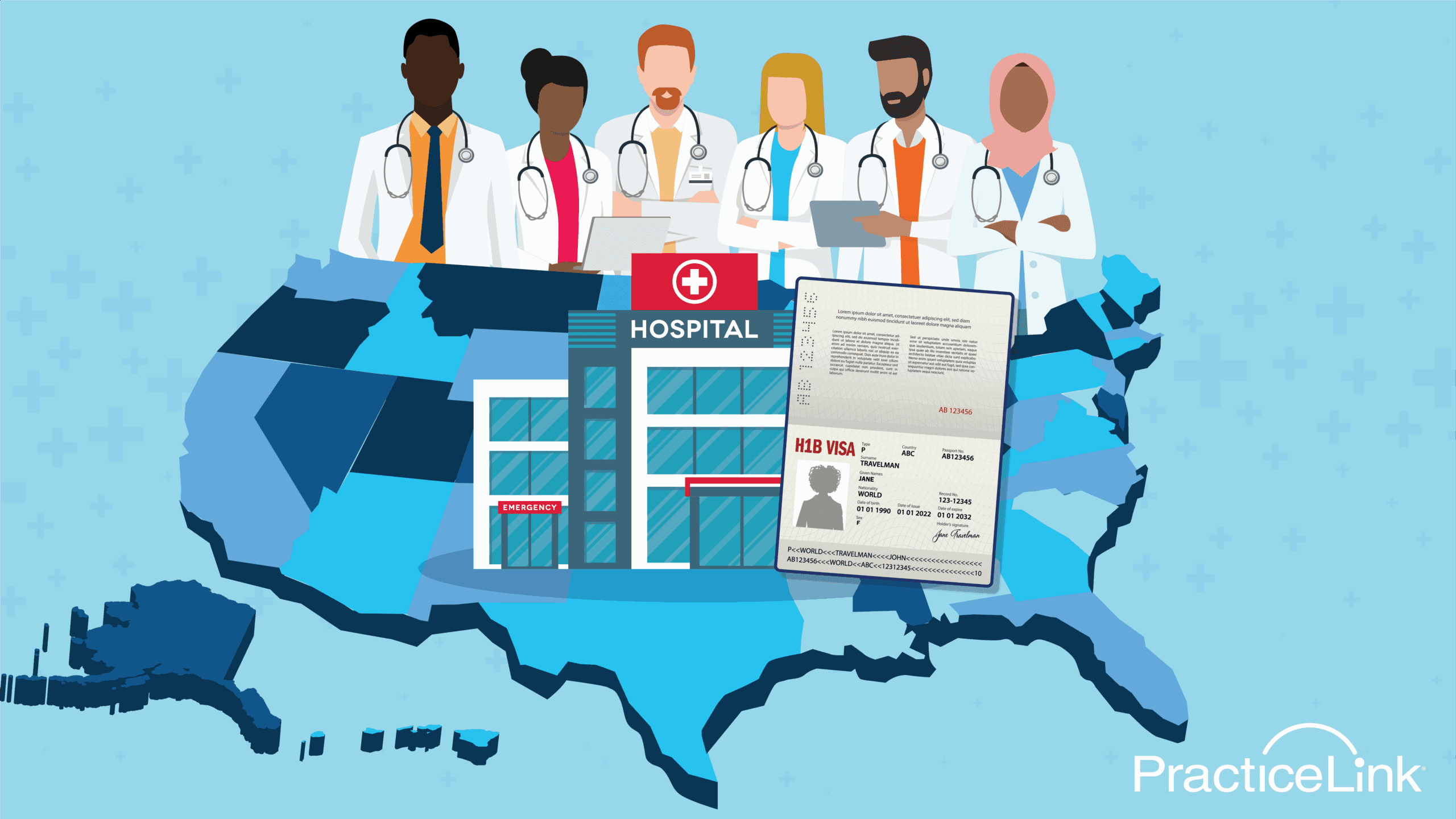
Can doctors apply for an H-1B visa?
Many international medical graduates (IMGs) and foreign-trained physicians exploring visa options ask: Can doctors apply for an H-1B visa? The answer is yes—but with specific requirements and considerations. The H-1B visa is a popular work visa for physicians who wish to practice in the U.S. without the restrictions imposed by other visa categories.
Understanding the physician visa process is essential for IMGs seeking U.S. residency or employment. Additionally, exploring the H1B visa for doctors can help foreign physicians determine if this visa is the right path for them.
Can doctors apply for an H1B visa?
The H1B visa for doctors is a non-immigrant work visa that allows foreign physicians to work in the U.S. in specialized fields, including patient care, medical research and academic roles. Unlike the J-1 visa, the H-1B does not have a mandatory home-country return requirement, making it the preferred choice for those who want to establish a long-term career in the U.S.
To qualify for an H-1B visa, doctors must:
- Have an offer of employment from a U.S. employer, such as a hospital, clinic or medical research institution.
- Pass the United States Medical Licensing Examination (USMLE) Steps 1, 2 CK and 3.
- Obtain a valid state medical license (if involved in patient care).
- Demonstrate English proficiency through an exam such as TOEFL (if applicable).
- Have an employer willing to sponsor the H-1B petition.
Since the H-1B visa is employer-sponsored, applicants cannot apply independently. Instead, they must secure a job offer before their employer submits an H-1B petition to the United States Citizenship and Immigration Services (USCIS).
Can doctors get an H1B visa?
Physicians who meet the eligibility criteria can obtain an H-1B visa, but the availability of H1B visa residency programs can be a challenge. Not all residency programs sponsor H-1B visas, as many prefer the J-1 visa due to its streamlined process and waiver options.
Key considerations for H-1B residency programs:
- Limited Availability: Many residency programs prefer to sponsor J-1 visas for foreign medical graduates, as it is more commonly accepted.
- Higher Employer Responsibility: Employers sponsoring an H-1B visa must file a Labor Condition Application (LCA) with the Department of Labor and comply with wage requirements.
- Annual Cap: The H-1B visa is subject to an annual cap of 65,000 visas, with an additional 20,000 available for applicants with a U.S. master’s degree or higher.
- Cap-Exempt Employers: Some employers, such as nonprofit research organizations and academic institutions, are cap-exempt, meaning they can sponsor H-1B visas without restrictions on availability.
Foreign medical graduates who want to secure an H-1B visa should carefully research residency programs that offer sponsorship or consider applying to cap-exempt employers to increase their chances of approval.
Which is better J1 or H1B visa?
Physicians often compare the J1 vs H1B visa for medical residency to determine which best aligns with their career goals. Both visas offer unique benefits and challenges:
| Feature | J-1 Visa | H-1B Visa |
| Sponsorship | ECFMG sponsors J-1 visas for residency programs | Employer-sponsored |
| Home Residency Requirement | Requires a 2-year home-country return unless waived | No home residency requirement |
| Long-Term Work Flexibility | Requires waiver or transition to another visa | Provides a path to permanent residency |
| Availability | More residency programs accept J-1 visas | Limited residency programs sponsor H-1B visas |
The J-1 visa is more common for medical residency, while the H-1B visa is preferred by physicians seeking long-term career opportunities in the U.S. Those planning to stay in the U.S. after residency often choose the H-1B visa due to its lack of a home residency requirement and its ability to lead to a Green Card.
What is the best visa for a doctor?
When considering the best residency programs for foreign medical graduates, the choice of visa plays an important role. The best visa for a doctor depends on their career aspirations, immigration goals and employment opportunities.
Top considerations when choosing a visa:
- Short-Term vs. Long-Term Goals: The J-1 visa is often the easiest route for securing a residency, but the H-1B visa is better for long-term career prospects in the U.S.
- Residency Program Sponsorship: Certain residency programs only accept J-1 visa applicants, while others offer H-1B sponsorship.
- Green Card Pathway: The H-1B visa allows physicians to pursue permanent residency (Green Card) more easily than the J-1 visa, which requires a waiver.
Ultimately, physicians should evaluate their personal and professional goals when selecting a visa. While the J-1 visa is the most commonly used for residency, the H-1B visa provides greater flexibility for those who wish to stay and work in the U.S. long term.
For IMGs and foreign-trained physicians, the H-1B visa for doctors is a valuable pathway to practicing medicine in the U.S. While obtaining an H-1B visa is possible, applicants must meet stringent eligibility criteria, secure an employer sponsor and navigate the complexities of the visa process.
Choosing between the J-1 vs H-1B visa for medical residency depends on individual goals. Those seeking the easiest pathway to a residency program may find the J-1 visa more accessible, while those planning a long-term career in the U.S. may prefer the H-1B visa.
If you are an international physician looking for U.S. residency opportunities, start your application process today.

